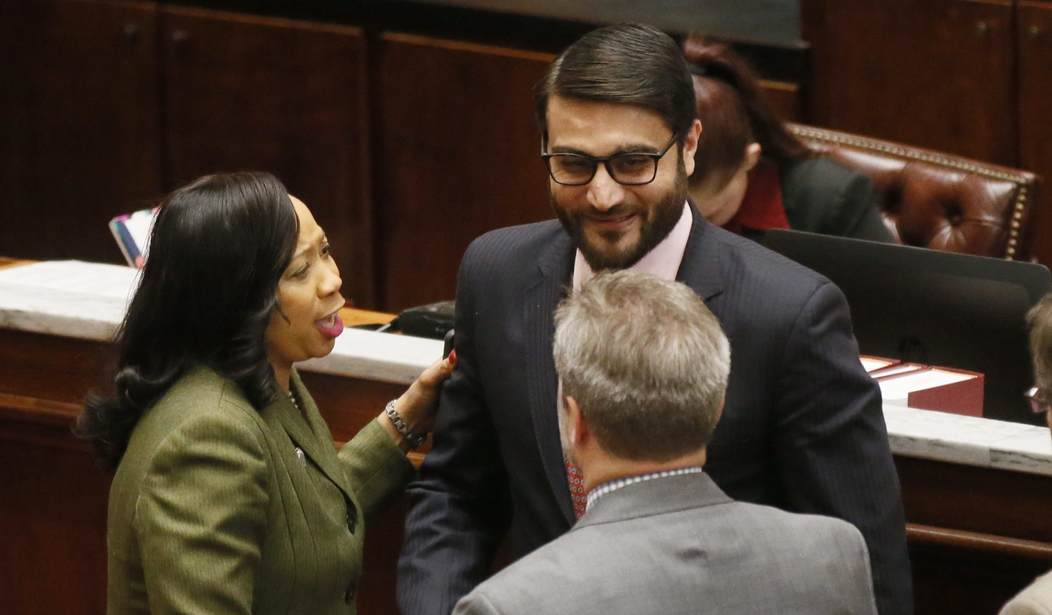WASHINGTON – Afghanistan’s ambassador to the United States, Hamdullah Mohib, told Pakistani Ambassador Aizaz Ahmad Chaudhry that there is “systematic” government and military “sponsorship of terrorism” in Pakistan and urged the Pakistani government to change course.
“There is systematic government, there is systematic military sponsorship of terrorism. All we ask our dear neighbor is to help us help you. Let’s help them with a strong civilian government in Pakistan,” said Mohib during a discussion with Chaudhry sponsored by the Middle East Institute last week at the Carnegie Endowment for International Peace.
“Let’s end Pakistan’s military occupation of poor people who are suffering and let’s create a stable region, not for us but for the world,” he added. “Look, Pakistan was built on the name of Islam. We’re putting Islam to shame and embarrassing this entire religion based on this extremism, based on terrorism.”
Chaudhry said Mohib made an “outrageous level of accusations” but declined to respond to “internal affairs.”
Mohib’s comments were made in response to a question about increasing border security between Afghanistan and Pakistan to prevent violence.
“I cannot agree more that this border must be managed better. There have been times that there were as many as 80,000 people who would cross the border by day without passports and visas. And I think that realization has already sunk in within Pakistan and for the last two years we’re focusing a great deal on border management,” Chaudhry said.
“The rationale is very, very clear, much similar to what you said sir, that if there are complaints from the Afghan side that there are bad guys going from Pakistan’s side to create the kind of havoc they do, or if there are bad guys coming from the Afghan side to Pakistan’s side doing bad things, then the answer lies in better managing that border – that is not to stifle, in any manner, the movement of genuine, bonafide travels and border crossers – not at all. It’s only that they should have a passport and they should have a visa, and I think that is important,” he added.
Mohib shot back, “Then will you stop issuing passports to terrorists who can then cross over – legitimately crossing over the frontier?”
He said the question about increased border security measures as a way to stop terrorism was built on misinformation.
“I’m sorry to disagree, but this is a smokescreen. I think you have been a victim of Pakistan’s propaganda and smokescreen. The terrorists are not on the frontier. Pakistan Prime Minister Gilani’s son was kidnapped in Multan [Pakistan], far away from the frontier, going through several security checks,” Mohib said.
Yousaf Raza Gilani’s son was later rescued in Afghanistan after being kidnapped by al-Qaeda.
“Bin Laden was, once again, not found along the frontier. He was found in a secure Pakistani settlement. [Taliban leader] Mullah Mansour was killed where he was killed [in Pakistan], not on the Afghan frontier. He was traveling with legitimate documents,” Mohib said.
Chaudhry said that “millions” of refugees came into Pakistan after the Soviet invasion of Afghanistan and there are 3 million still living inside the country.
“Time and again we have requested that these people should be allowed to go back, and they should go back. Many of them have taken Pakistani identities and the second generation has grown,” he said.
In response, Mohib said the “hospitality is appreciated but you cannot hold that over our head and use terrorism to justify it because you gave us space when we needed it, which was paid for by the international community.”
Chaudhry also said the Pakistani government agrees terrorism is an international problem.
“It is a national problem in Pakistan also. We have militants who create instability and we have waged a fight against them, which is still continuing,” he said. “The good news is that we are willing to war against them, and the proof is you can go see for yourself what has happened. You can see the improved law and order. You can see the situation on the ground.”









Join the conversation as a VIP Member